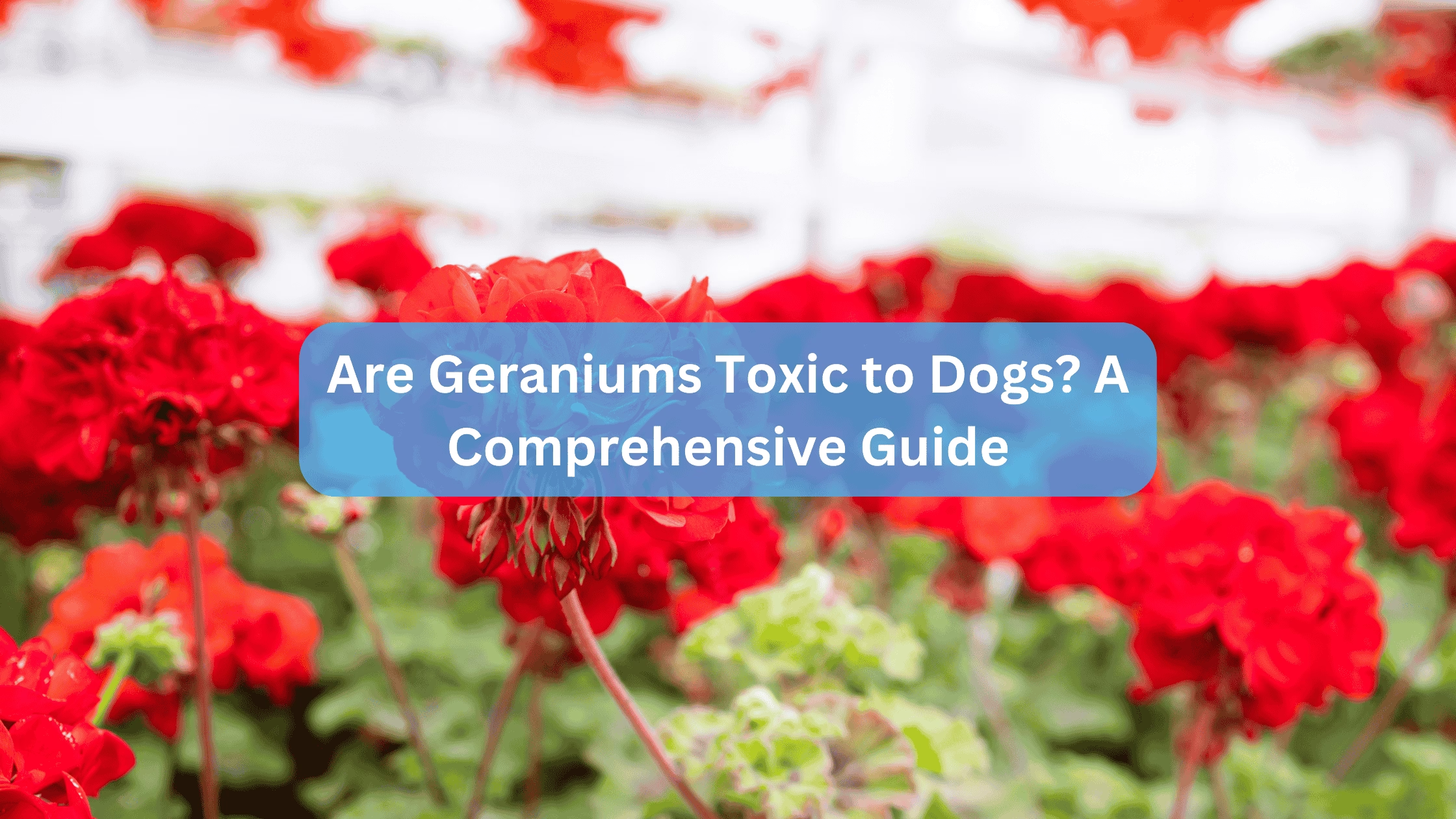Geraniums are popular plants known for their vibrant colors and pleasant fragrances, often gracing gardens and homes alike. However, if you’re a dog owner, you might be wondering: Are geraniums toxic to dogs? This guide will delve into the toxicity of geraniums, the symptoms to watch for, treatment options, and preventive measures to keep your furry friends safe.
What Are Geraniums?
Geraniums belong to the Geraniaceae family and are commonly found in two main genera: Pelargonium and Geranium. While both types are often referred to as geraniums, they have different characteristics and toxicity levels.
Types of Geraniums
- Pelargonium: This genus includes most common garden geraniums. They are often fragrant and colorful but can pose risks to dogs.
- Geranium: Known as cranesbills, these plants are generally considered non-toxic to dogs and can be a safer choice for pet owners.
Toxicity Overview
All parts of the Pelargonium species are considered mildly toxic to dogs. The primary toxic compounds found in these plants are geraniol and linalool, which can cause various health issues if ingested or if they come into contact with a dog’s skin.
Are Geraniums Toxic to Dogs?
Yes, geraniums, specifically those belonging to the Pelargonium genus, are toxic to dogs. The toxicity is classified as mild; however, it can still lead to uncomfortable symptoms and potential health risks.
Symptoms of Geranium Poisoning in Dogs
If your dog has ingested any part of a geranium plant, you may observe the following symptoms:
- Vomiting: This is often the first sign that something is wrong. Dogs may vomit shortly after ingestion.
- Lethargy: A noticeable decrease in energy levels or enthusiasm for activities.
- Loss of Appetite: Your dog may refuse food or show disinterest in eating.
- Skin Irritation: Contact with the plant can cause redness or irritation around the mouth or other areas that touched the plant.
- Depression: A general sense of malaise or sadness can occur.
In severe cases, ingestion of large amounts may lead to more serious health complications, although fatalities from geranium poisoning are rare.
Immediate Actions if Your Dog Ingests Geraniums
If you suspect that your dog has eaten geraniums, it’s important to act quickly:
- Remove Access: Ensure your dog cannot access any more of the plant.
- Rinse Mouth: If safe to do so, rinse your dog’s mouth with water to remove any plant material.
- Monitor Symptoms: Keep an eye on your dog for any signs of distress or worsening symptoms.
- Contact Your Vet: If symptoms persist or worsen, contact your veterinarian immediately for advice. Be prepared to provide details about the type of plant ingested and how much.
When to See a Vet
You should seek veterinary attention if:
- Your dog exhibits severe symptoms such as continuous vomiting or lethargy.
- You know your dog has consumed a significant amount of the plant.
- You are uncertain about the severity of exposure.
Treatment Options for Geranium Poisoning
Most cases of geranium poisoning do not require extensive treatment. However, here’s what you can expect:
- Veterinary Assessment: The vet will assess the situation based on symptoms and history of exposure.
- Inducing Vomiting: If ingestion was recent and significant, the vet may induce vomiting to prevent further absorption of toxins.
- Activated Charcoal: This may be administered to absorb toxins in the gastrointestinal tract.
- Supportive Care: IV fluids may be provided if dehydration occurs due to vomiting.
Preventive Measures to keep your dog safe from Geranium poisoning
- Choose Non-Toxic Plants: Opt for non-toxic varieties like Geranium (cranesbill) instead of Pelargonium.
- Garden Layout: Plant potentially harmful plants out of reach or in hanging baskets.
- Training: Teach your dog not to chew on plants by redirecting their attention when they show interest in them.
- Regular Checks: Routinely check your garden and home for any signs that your dog might have ingested something harmful.
Related Questions
Can Dogs Eat Geraniums?
No, dogs should not eat geraniums from the Pelargonium genus as they are mildly toxic.
What Happens If a Dog Eats Geranium?
Dogs may experience mild stomach upset, vomiting, lethargy, and skin irritation after ingesting geraniums.
Can Geranium Oil Be Harmful?
Yes, essential oils derived from geraniums are more concentrated and can be highly toxic to dogs. It’s crucial to keep such oils out of reach.
Are All Geranium Varieties Toxic?
Not all varieties are toxic; those from the Geranium genus (cranesbill) are generally considered safe for dogs.
How Can I Tell If My Dog Has Ingested Geraniums?
Watch for symptoms like vomiting, lethargy, loss of appetite, and skin irritation around contact areas.
Also Read: Can Dogs Eat Sourdough Bread? A Comprehensive Guide
Also Read: Are Monsteras Toxic to Dogs? A Comprehensive Guide
Conclusion
While geraniums add beauty to gardens and homes, it’s essential for dog owners to understand their potential toxicity.
By being informed about which types of geraniums pose risks and recognizing symptoms of poisoning early on, you can take proactive steps to keep your furry friends safe.
If you suspect that your dog has ingested any part of a geranium plant or is showing concerning symptoms, don’t hesitate—contact your veterinarian right away.
Keeping poisonous plants out of reach is vital for ensuring a safe environment for your pets while still enjoying the beauty that gardening brings.
Sources:
- https://greg.app/woolly-geranium-toxic-to-dogs/
- https://www.akc.org/expert-advice/home-living/poisonous-plants-for-dogs/
- https://www.aspca.org/pet-care/animal-poison-control/toxic-and-non-toxic-plants/geranium







